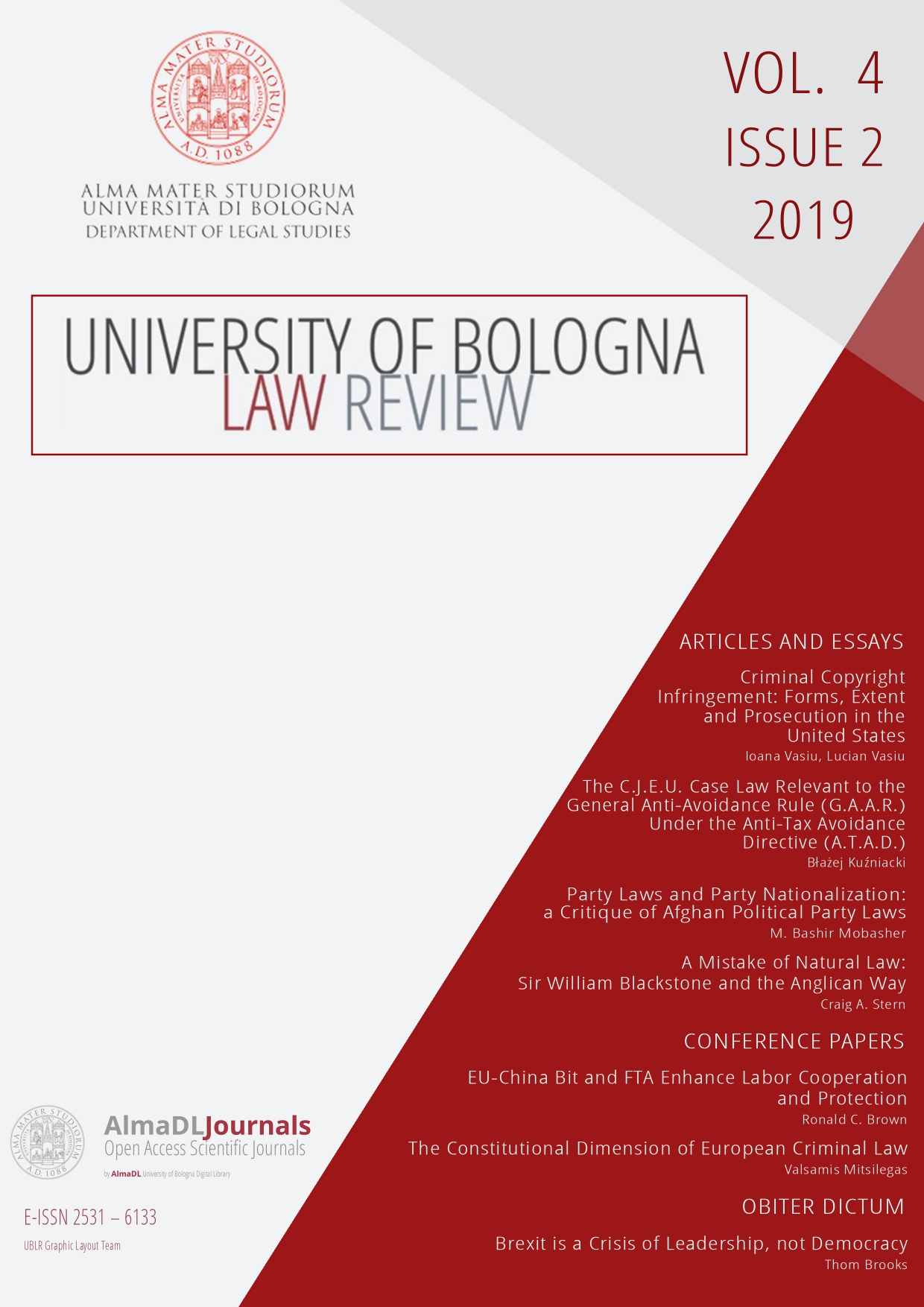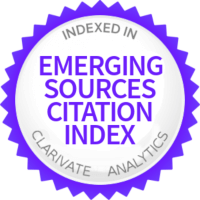A Mistake of Natural Law: Sir William Blackstone and the Anglican Way
DOI:
https://doi.org/10.6092/issn.2531-6133/10402Keywords:
Blackstone, Natural Law, Roman Law, Anglicanism, Law and ReligionAbstract
It is said that no book on the common law surpasses the importance of Sir William Blackstone’s Commentaries on the Laws of England. But it is also said that the Commentaries is of questionable merit, with aspects of it downright incoherent. The most fundamental element of the Commentaries to attract this disparaging characterization is its discussion and use of what it usually calls “the law of nature” — and what we these days usually call “natural law.” Does the Commentaries perpetrate a mistake — actually many mistakes — of natural law? This article answers that it is not the Commentaries, but rather its critics that perpetrate mistakes of natural law. The mistakes arise from the expectation that Blackstone’s natural law would take after Thomas Aquinas’s (or even Christopher St. German’s) natural law. But readers of the Commentaries who allow Blackstone his own way with natural law will find it a valuable treatment that animates the whole. Blackstone’s natural law owes much to two influences, Roman law and the Anglican Church. The second influence is the more distinctive and guides Blackstone’s response to the first. Both led Blackstone to view the natural law as an order immanent in human law, an order especially prominent within the common law. Seen in this light, natural law provides the foundation for the Commentaries and a foundation for understanding law in our own day.
Downloads
Downloads
Published
How to Cite
Issue
Section
License
Copyright (c) 2020 Craig A. Stern
The copyright of all the manuscripts on this journal belongs to the respective authors.
This journal is licensed under a Creative Commons Attribution 4.0 International License (full legal code).
See also our Open Access Policy.












